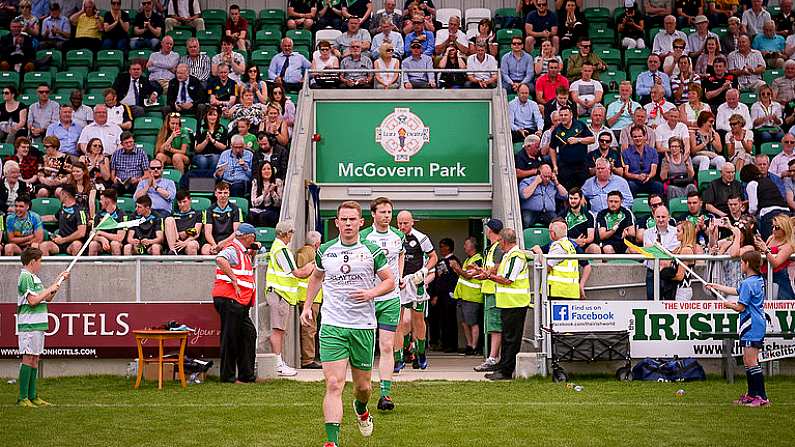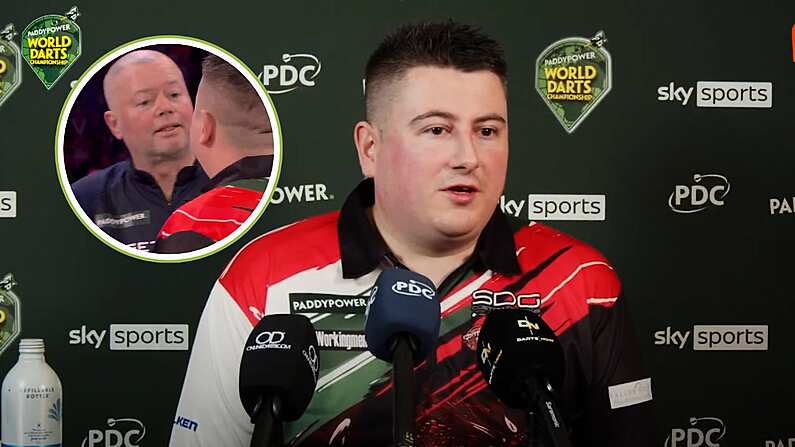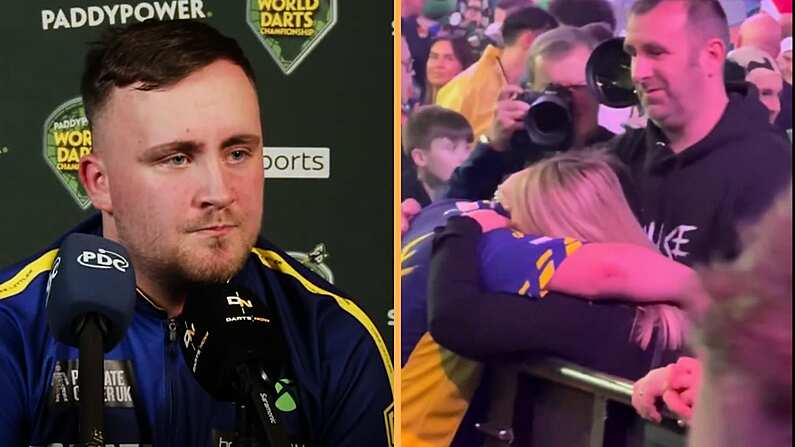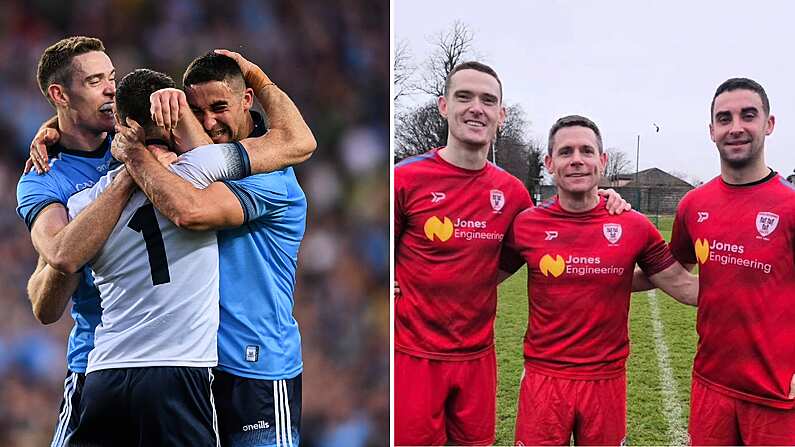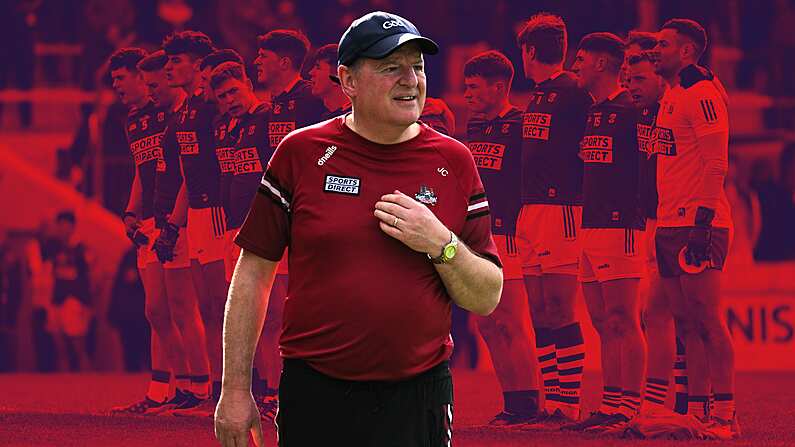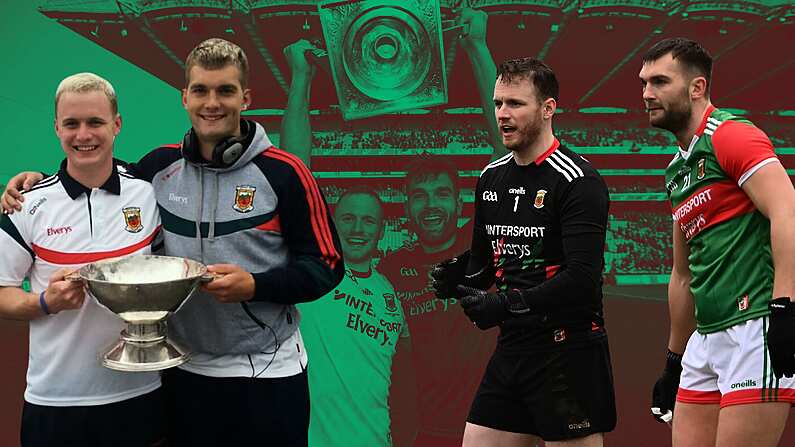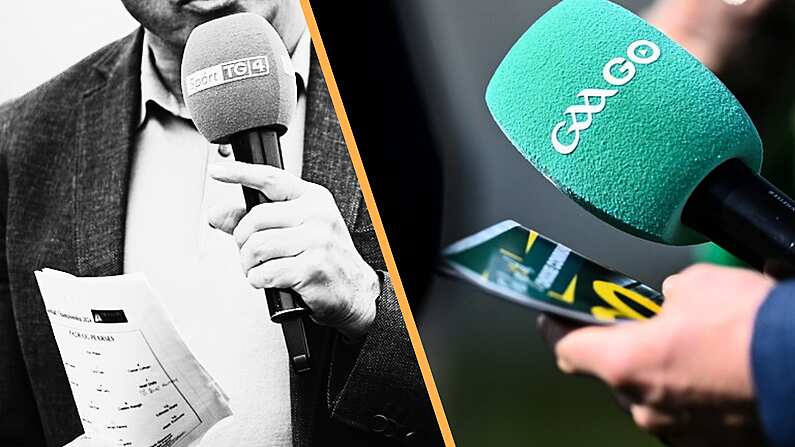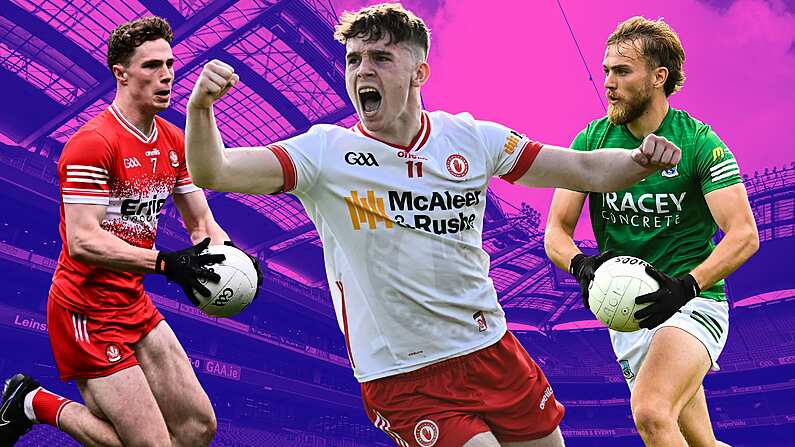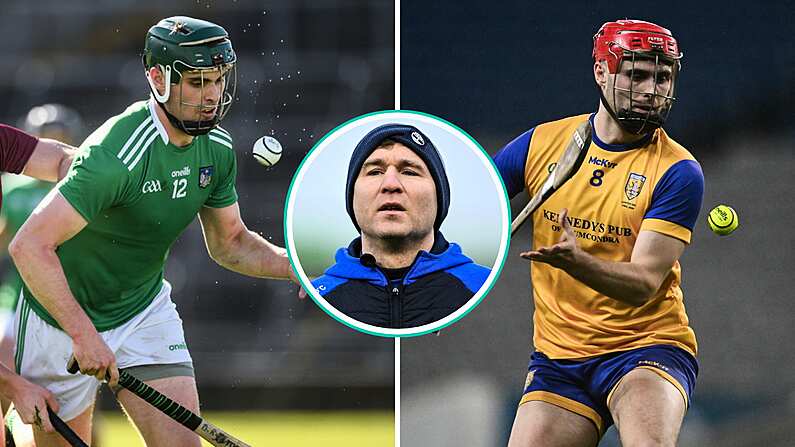There are two striking features when you watch London captain Liam Gavaghan play football. The first is that he is an extraordinary talent; equipped with a cannon of a right boot and ground-eating pace hugely propitious for any inter-county player. The second is his accent; Gavaghan is London born and breed. When he togs out in the opening round of the Connacht Championship this weekend, he will do so to represent his own county.
Gavaghan's path to inter-county football was similar to the majority. As he explains in a distinctly west-London brogue, the only real difference is the location.
I was born here, obviously! My family is Irish. My parents are from the west of Ireland, Mayo and Sligo and they moved over here in 1988. I was born over here with my twin sister. My dad is mad into GAA and football. Where we are based in west London there is quite an Irish community and a lot of Irish around here. Just like any other youngster, I started playing as a kid when I was 8 years of age and just kept going through the age groups up to senior.
55min: @LONDAINGAA 1-6 vs 1-5 @LimerickCLG @officialgaa - lovely score from Exiles skipper Liam Gavaghan pic.twitter.com/0IzUaLKGY4
— the Irish World (@theirishworld) February 11, 2018
Growing up, Gavaghan had one real ambition; to represent London. It was a dream forged by childhood visits to Ruislip to watch his county play.
That’s all I know really. Its where I'm born, where I played and basically who I watched since I was a kid. It is kind of the only county I can refer to, you know. This is my county and I've been going to these games on Sundays since I was a kid and watching London play against all the different Connacht counties.
The origins of the GAA in London extend back as far as 1896. As Irish immigrant continued to travel in their thousands, they brought with them aspects of their life. GAA was a fundamental aspect. Gavaghan is also a member of one of London's most prestigious GAA clubs, formed in 1962 by a group of Donegal men as a club to cater for all grades. Not only do they invest in accommodating men's senior, juniors, reserve, ladies and underage football, but there is now an emphasis on developing local prospects and growing the game.
I think there is a good community within London and London GAA. Especially in my area and my club, Tir Chonaill Gaels. they have quite a good underage structure and they essentially built an all-English junior team. It is for English born players who were going up from minor to senior, they had people dropping away because of that jump. My club put in a junior team into all the Junior Championship in London. A lot of lads I grew up with or played underage with are playing for that team. They are all English born like me and have a good sense of Irish community within them.
We’ve been competing for the last few years and are competitive. They are getting to semi-finals and finals. Unfortunately, we have been on a losing side but they are close to winning a Junior Championship. It is only good for the club, for London GAA. For promoting English born players and getting them playing.
Good luck to our club men involved with London V Sligothis weekend and also to the management and players.
One 3rd of the starting team came through our minor ranks.
🇳🇬🇳🇬🔴⚪️🔴— Tir Chonaill Gaels (@TirChonailGaels) May 4, 2018
Gavaghan's route to inter-county football may be similar to his counterparts but his profession certainly isn't. A career in signal engineering sees the London skipper working nights on the underground, a challenging prospect at the best of times.
It’s different. Night shifts are always different. You have to be a bit more militant. A bit more regimental. you have to be strict with yourself. I mean it is very easy to sleep all day so you have to make sure the alarm clock is set and make sure you are strict in getting up and having as much as a normal routine as you can. It’s not too bad during the week in terms of training. Obviously, training is in the evening. It is actually pretty good for training because you're well rested as opposed to having a 12 hour day before it. But on the flip side, on weekends you have to change your body clock for games on a Sunday or training on a Sunday morning. You know you have to get up early on a Saturday to sleep Saturday night. During the week I start at 11 pm, so essentially I train, I leave training and head straight to work and start at 11. I get back in around six or seven in the morning.
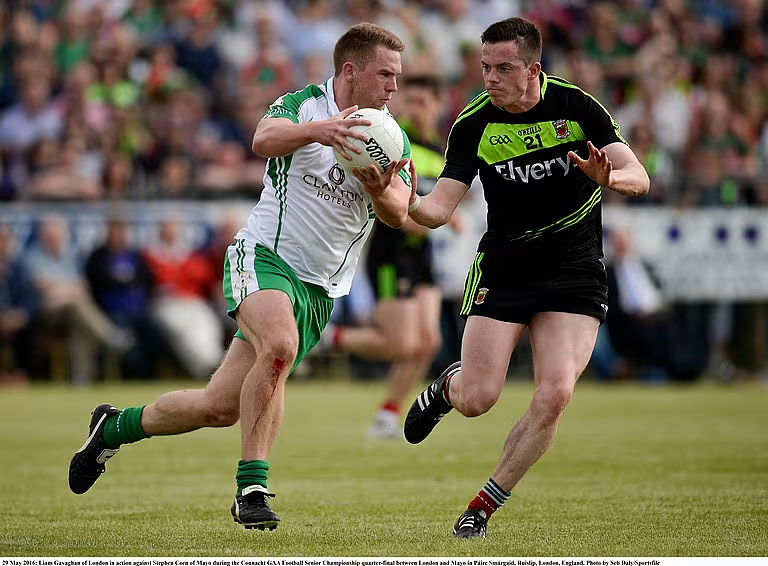
Across the GAA, those entrenched in the lower rungs are familiar with minimal attention and slight coverage. It a reality for the bulk of teams competing this year. The London captain's situation is a step beyond even that. A footballer in a 'so-called weaker' county in a career entirely oblivious to his craft. There is no sense of bitterness at this predicament; he did not elect for this route for the attention. Beneath it all is a passion for football and a willingness to see the positive in just about anything.
The majority of people within my work wouldn’t really know about gaelic football. It is obviously different to playing in Ireland and you are playing for your county. Everyone will know and in work, everyone talks about it. Whereas here, I go to training and go to work and nobody would ask me or nobody has any real interest. They don’t really know what it is.
it can be quite good to go to work and get away from it. You know, it is nice to get over a tough week training and then heading into a night shift. Maybe the last thing you want is people getting onto you about how you are fixed for a game. In one way it is nice to just get away from it, go and do a job. People aren’t talking to you the whole time about gaelic football. Mostly they never are!
This weekend's game carries a powerful reminder for the Exiles. Their last great success came in 2013, when they secured their first victory in the Connacht Championship since 1977 with a win over Sligo. Gavaghan hopes to captain his side to a similar scalp this Sunday, but knows London GAA is more than just this one game. Right now, the entire structure, whether it be the work with his club or the work with his county, breeds confidence.
At the end of the day everybody every county team has high goals. Obviously, we want to be the best that we can be. Particularly during the league campaign. We had a solid campaign, it was decent. Now we are not looking past Sligo, we've got a tough battle on Sunday.
I think all the boys are in a good spot. Training has been hard, but we want to be competitive, that’s what it is all about. I think we're in a good place.

